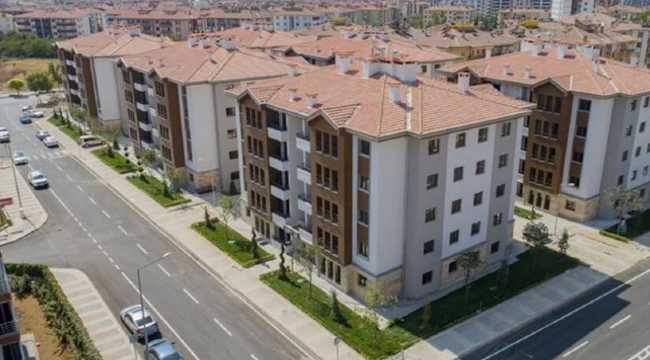Housing sector in Turkey: There could be significant difficulties in 2025

One of the locomotive sectors of the Turkish economy, the construction sector, continues to slow down except in earthquake zones. First-hand housing sales saw a slight increase in the January-February 2024 period due to companies offering up to 60-month installments through their own means after a long period of decline. However, second-hand housing sales saw a decrease during the same period. The sharp decline in mortgage sales in first-hand housing also continued at the same rate. In January, while the construction cost index increased by 15.7% monthly and 67.9% annually, the rise in labor index by 103.4% drew attention, as well.
When all these figures are analyzed in more detail, it is seen that the construction sector is searching for its own solutions, but this could be considered a temporary solution. Particularly, the scarcity of housing loans and the recent increase in the Central Bank’s policy interest rate, causing housing loan interest rates to rise again, will lead to further decreases in housing supply in the upcoming period. Many branded housing producers who have recently had to postpone the construction of their projects with obtained permits are trying to solve their sales financing through their own means, offering installment plans of up to 60 months initially, but this does not seem sustainable in the long run. Because the construction of a housing project takes an average of 3 years, and there is a delicate balance between financing and sales to maintain profitability.
SECOND-HAND HOUSING MARKET ALSO SHRINKING
The President of the Association of Housing Developers and Investors (KONUTDER), interprets the current situation in the market as follows: “Looking at the permits obtained, we see that 5 million housing permits were obtained between 2013-2018, and 3 million between 2018-2023. When we look at the housing sold in the last 5 years, we see that the number of second-hand housing has increased from hundreds of thousands to 1.1 million. This data proves that when new housing production slows down, second-hand housing comes to the fore. However, according to the 2023 data, we see that second-hand housing sales have also decreased to 850 thousand annually. So, the second-hand housing market is also shrinking, it’s also stuck. This year, both new housing and second-hand housing markets continue to shrink. Our branded housing companies are trying to solve the financing of their sales with their own means. Recently, campaigns with low down payments and interest rates up to 60 months are being conducted. The producer extends its own term. Is this a solution? This actually saves the day for cash a bit. This leads to two things, firstly, it causes partial loss and is a problem, secondly, it can cause even bigger trouble for the company, which we can explain as follows. If the market still hasn’t improved after 6, 8, 12 months, and it is foreseeable that inflation and interest rates will only drop to single digits in 2026, companies that have made such long-term installments may eventually have to take the promissory notes they received from the citizens to the bank and take out loans. This means an additional cost for the company. Maybe 2024 can be passed in this way, but since the problem on the supply side is not resolved, we can see that both production and sales have declined much more sharply in 2025, but prices in both housing and rent have increased, and the problem in this area has grown even more.”
WOULD A NEW CAMPAIGN BE A SOLUTION
How effective can a ‘housing loan campaign’ to accelerate sales in the construction sector be until inflation and interest rates drop to reasonable levels? The President of KONUTDER, says, “If support does not come to the sector’s sales with a low-interest campaign as it did in 2020, the problem will grow significantly. Such a campaign also accelerates housing production. Otherwise, when sales decrease but prices increase, and rents remain high, someone will start blaming the sector again and ask ‘why is there a constant increase in housing prices.’ No one talks about how much production has decreased and how much costs have increased.”
WHY ARE REAL ESTATE INVESTORS GOING ABROAD?
The same person also explains his views on the recent topic of ‘the rapidly increasing real estate investments of Turkish citizens abroad’, especially with the data from the Central Bank: “There are incentives for housing sales in many countries, while practices that discourage housing investors are always on the agenda in our country. The outflow of real estate investments by Turkish citizens abroad, which was around 700 million dollars in 2022, seems to have reached 2.5 billion dollars in 2023. There are almost no credits in Turkey, and the interest rates are very high. There is a limit on rental income. Will it be extended? Uncertain. Taxes are constantly being discussed for those who own a second home, and there is support for this in the public opinion. Abroad, there are favorable loans, and our real estate investors have started to invest abroad. Therefore, there is a serious outflow of money from the country. Who benefits from this?”
SOURCE: https://www.ekonomim.com/kose-yazisi/konutta-2025de-buyuk-sikinti-yasariz/736319
Article in Turkish by Sadi ÖZDEMİR
Translated by BTT





